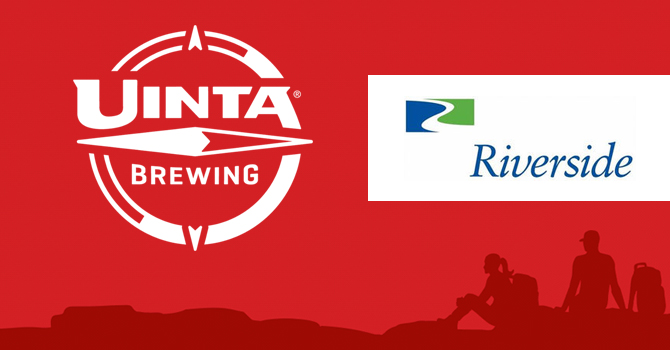
The Riverside Company, a private equity firm with offices in New York City and Cleveland, has exited its investment in Salt Lake City’s Uinta Brewing Company.
Reached by Brewbound, a spokesperson for the firm, which acquired a partial stake in 2014, declined to comment on the reasons why it decided to back away from the investment.
“After our investment in 2014, Riverside provided support and additional resources to grow Uinta by expanding its existing facility space and investing in new fermentation and brite tanks to expand production and further its geographic footprint,” the spokesperson wrote to Brewbound. “We also remained committed to helping Uinta make great beer, as the brewery introduced many new products and continued to win accolades during the investment period.”
Uinta president Jeremy Ragonese confirmed that Riverside had exited its position in the company, and said existing partner Golub Capital stepped up to buy out Riverside.
“In March, Uinta secured a new investment from Golub Capital to drive growth,” he said. “As a result of the new commitment, Golub Capital, an investor since 2014, now holds a controlling stake in the business.”
Uinta, currently ranked by the Brewers Association as the 42nd largest craft brewery in the U.S., struggled to grow in 2018. According to Ragonese, production declined 15 percent, to 79,600 barrels last year.
In the three years immediately following Riverside’s investment (2015, 2016, and 2017), production increased between six and eight percent annually.
But increasing competition coupled with a strategy of expanding distribution to markets where the Uinta brand was less relevant led to declines last year and ultimately set the brewery back.
“Over the course of those years, the challenge of competing on a national scale without large marketing budgets and personnel became extraordinarily difficult for us to sustain,” Ragonese told Brewbound.
As a result, Uinta has worked throughout the first half of 2019 to withdraw from underperforming markets.
Moving forward, Uinta will deploy a more regional distribution strategy focused on selling beer across the “western half of the U.S.”

Uinta, which had at one point sold beer in 48 states, has pulled out of a number of markets. Ragonese said he expects the entire retrenchment process to be completed before the end of the summer, and noted that the number of markets Uinta sells its products in remains “in flux.”
“We’re continuing to work with wholesalers who can align with us on a sustainable path forward, notably in the East where we’ve been challenged to adequately service given the rising cost of freight coupled with declining volumes,” he said.
As it refocuses, the company is also adjusting how it measures success, Ragonese said.
“Volume growth just isn’t the metric we’re focused on at the moment,” he said. “Performance against plan and profitability is a better gauge of our immediate success.”
Although Uinta could face continued declines in 2019, partially as a result of a January recall that impacted 20,000 cases of beer, Ragonese said he’s optimistic about the future of the brand.
“We’re tracking results and setting expectations market-by-market, channel-by-channel to determine what the new baseline for Uinta will be moving forward,” he said, noting that the company is working to stem losses and stabilize sales.
As a result of the company’s recent downturn, increased competition in the marketplace, and its own distribution adjustments, Uinta was forced to eliminate some jobs. However, the company also created new positions “in the west,” and rehired former national chain accounts director Noah Brown, who had left for Rhinegeist Brewery last April, as its new vice president of sales.
Additionally, Uinta is actively looking to add contract brewing partners and manufacture private label beers, a division Ragonese believes could eventually become 30 percent of its overall business.
“We can afford a lot of opportunity to people who are looking to expand,” he said. “We have the experience, the equipment and the people in place.”
Uinta currently makes beer for four outside companies and has one private label contract, Ragonese added.
“We are a business in transition,” he said. “Through a lot of introspection, we have become more focused on self-improvement initiatives. We needed to identify weak spots, and find the holes we needed to fill. We feel like we have the history to build on, and we are excited about the opportunities we have moving forward.”
